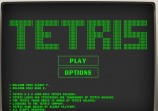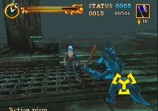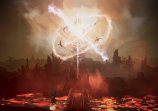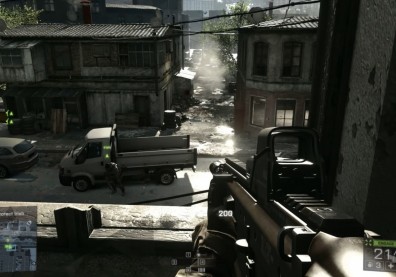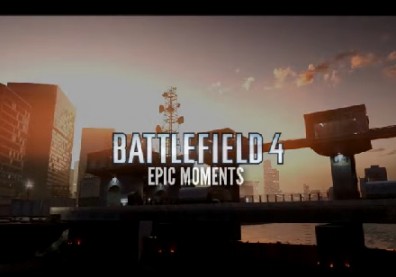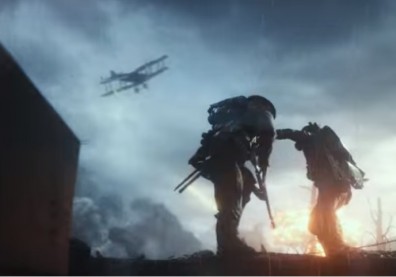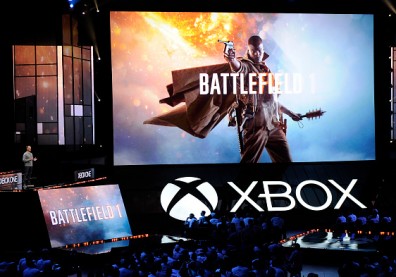It's a wonderful thing when you can bring two seemingly random things together and find some way to compare them. Video games, in particular, are always vying for your constantly split attention, and while some are particularly good at luring the internet browsing attention, others are far more deserving, which brings us to "Battlefield 4" and "Luigi's Mansion: Dark Moon." The first was just revealed a couple days ago, while the second hit store shelves recently. At first glance they have nothing to do with each other, but spending time analyzing one or playing the other, there's a jarring similarity - both of their campaigns seek to immerse players on visual and audio communication.
Under this filter, the success of animation, audio cues and other game engine bells and whistles to achieve desired effect, there's no doubt that "Luigi's Mansion: Dark Moon" is the superior game. And I say this understanding "Battlefield 4" has a ways to go before I can actually play it. How unfair, you might say, but EA is asking us to make these kinds of judgments based on a measly 17 minutes in the first place. How unfair of them as well.
Let me just be clear here, we're comparing campaigns, not multiplayer, in which "Battlefield" has found far more critical success than the single-player campaigns ever will. "Luigi's Mansion: Dark Moon" has some pretty nifty multiplayer too, but I can't imagine many of you holding up against "Battlefield" for any reason. I wouldn't expect you to, but comparing what EA is striving for in the single-player campaign to what Nintendo has achieved with "Luigi's Mansion" isn't so audacious.
Let's make a judgment. Every so-called realistic military shooter, the entire genre, is an undeniable joke. You cannot make a game and call it war, where death equates to respawning and you can press E to "Fly Helicopter." The "Battlefield" franchise, as of late, has made a name for itself crafting and showing off the Frostbite engine in all its attempts at realism, reflecting the tiniest rays of light off wet helmets, casting a glint off your up-close comrade's eye or emitting a bullet echo in conjunction with the wideness of the space around you. It's all very impressive up until you realize you're still just playing a first-person shooter, taking cover and shooting down scopes, sprinting over collapsing buildings and escaping stalking helicopters. EA wants us to believe in this world they're building in "Battlefield 4," not because it has anything to do with reality, but because it's super pretty. I won't, I can't, it's impossible to do when you've just survived an entire building crumbling to pieces above your head, followed by a prime opportunity to robotically cut off a soldier's leg. Your hand shakes a little, the fear seems to bubble inside the poor guy, but then you press E to "Cut Leg" and the sequence moves on to the next ridiculous sequence. Realism is not possible in a video game, it never will be, it's not the point.
"Luigi's Mansion: Dark Moon" is absurdly unrealistic, and yet it makes more of a connection than EA's flashy lighting and brutish militaristic screams from the men around you. For all of "Battlefield 4's" 17 minutes of high-end gaming, it only takes five seconds of "Luigi's Mansion: Dark Moon" to convince me the future of gaming has nothing to do with specs and gaming engines. "Battlefield 4" and the Frostbite 3 engine is a house of cards that crumbles at the sight of any inconsistency in realism, any stutter in its impeccable presentation, which happens any and every time you respawn into a level and every time you're asked to nonchalantly cut a man's leg off. It can never make sense that way, because making sense, and creating realism, are not the same as immersion.
Luigi cowers in fear, his flashlight trembling in his hands as he slowly builds the courage to sneak into the next room. You can feel his anxiety through the underwhelming technical house of the 3DS, his peering and nervous humming is both humorous and infectious. He doesn't speak a word.
Your generic "Battlefield 4" comrade runs alongside you atop a crumbling building, screaming as you narrowly grab the ledge and save your buddy and then you survive a plummet to the ground. It all looks like it could be happening, physically, but emotionally it's vacant, stupid and ignorant of the point of playing a video game. I want to be immersed in a world, be a part of a world, and yet I can't do that when realistic graphics are juxtaposed with impossible situations. I can, however, do that when cartoonish, underwhelming graphics with highly-successful animation work aren't juxtaposed against anything. The cohesion within "Luigi's Mansion: Dark Moon" of visual display and tonal agreement among every aspect of the game, from the ghost-sucking combat to the nervous exploration, shows a developer with a grasp on creating actual video games. EA and DICE, on the other hand, are aiming for the immersion of an empty Hollywood blockbuster and the shallow sheen of a brand new coat of paint. They don't seem to get it, and the lackluster "Battlefield" campaigns prove they'll probably never get it.
Voice actors are brought in to scream and yell with convincing intensity, millions of particles fling about as if not conjured but previously existing, weapons fire off with little smoke puffs and what I assume are realistic sound effects. I don't care. I'm not a soldier. Why are you trying to convince me I am?
Luigi inches his way through a darkening hallway, and then a blue, comically mischievous ghost pops up behind him. He yelps in fear, jumping back with the exaggeration of a Tex Avery cartoon and proceeds to stun and suck up the ghost, dragged around the room as if lassoing a rogue stallion. It's odd, none of it makes sense, but nobody's trying to convince me it does. Luigi, on the other hand, convinces me that it's really happening by showing an impossibly wide range of emotions on his face in the span of two seconds. The visuals are jaggy, the number of on-screen characters never reaches more than five or six and the environments are cramped and cozy, colorful and with character, yet barely interactive.
We may spend another entire generation convincing ourselves that visuals equal immersion, but it just isn't the case. Crafting a cohesive world, one that makes sense within the context of itself, using visuals and animations to bring it all together and, most importantly, quitting all efforts to pull the curtain over gamers' heads with every new "next-gen" release, that's how you make a game. Luigi gets it. "Battlefield" simply does not.
In the end, EA and DICE are just making interactive movies. $60 interactive movies at that. Everyone else, mostly, is trying to make games.
